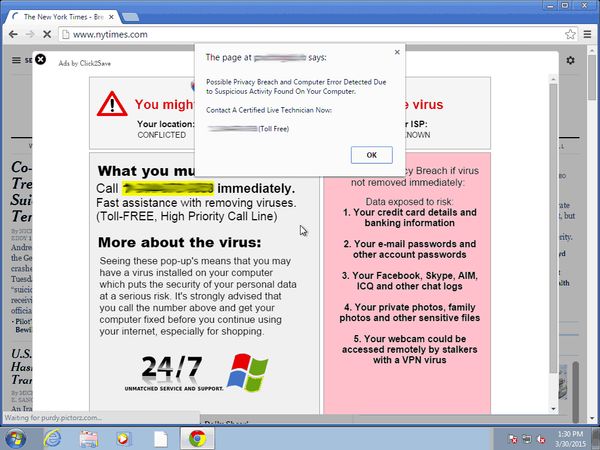AT&T Wi-Fi Hotspot Allegedly Used for Injecting Ads

One of AT&T’s free Wi-Fi hotspots is allegedly injecting ads that annoy users, slow browsing and clutter web pages, according to Jonathan Mayer, a computer scientist at Stanford.
While browsing the airport’s AT&T-powered Wi-Fi network, Mayer noticed ads appearing on educational, government and ad-supported sites such as The Wall Street Journal. He investigated the source and found three lines of code were added to the traffic.
The ad-injection platform seems to have been built by a company called RaGaPa.
Source: PC Mag
Ad-injectors also pose security risks to unencrypted (HTTP) traffic. They threaten users’ security by breaking browser encryption to place ads that can serve malware, steal account credentials and hijack search queries and report users’ activity to third parties for tracking.
In 2014, 5.5% of visitors to a Google site were served malicious ads, according to a Google study.
One solution is to use a VPN service, which encrypts all traffic passing over the Wi-Fi network while also stopping ad injectors.
tags
Author
Alexandra started writing about IT at the dawn of the decade - when an iPad was an eye-injury patch, we were minus Google+ and we all had Jobs.
View all postsRight now Top posts
How to Protect Your WhatsApp from Hackers and Scammers – 8 Key Settings and Best Practices
April 03, 2025
Outpacing Cyberthreats: Bitdefender Together with Scuderia Ferrari HP in 2025
March 12, 2025
Streamjacking Scams On YouTube Leverage CS2 Pro Player Championships to Defraud Gamers
February 20, 2025
How to Identify and Protect Yourself from Gaming Laptop Scams
February 11, 2025
FOLLOW US ON SOCIAL MEDIA
You might also like
Bookmarks









